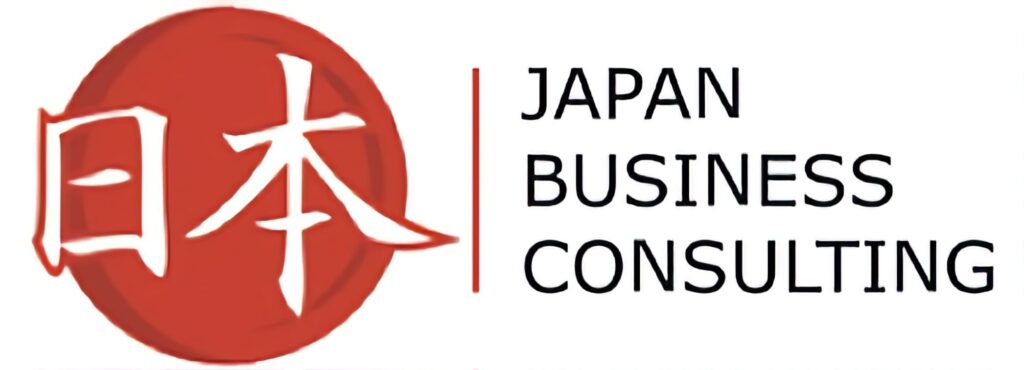Japanese Business Etiquette
Written by Erich Ahorner Dec. 4th 2019

I have made many mistakes when dealing with Japanese in the past 25 years.
I still remember one meeting where a I was very positive we could find an agreement with our Japanese distribution partner and they even brought a new sales representative designated for our project. But we were too confident too soon.
The first mistake we made was not actually reading his business card and just focusing on establishing eye contact and small talk. Business cards are a key part of a Japanese Business person’s identity and the ritual around them is very important in Japan.
The second mistake was to expect that a decision was going to be made in the meeting.
Meetings in Japan are held to report a status, collect information, and maybe announce a decision that was priorly made by the team internally. It is not a place to make decisions and if you try to push in that direction during a meeting it could harm your relationship with your Japanese partners. It definitely did in this example. The agreement never happened.
Politeness and sensitivity are at the centre of Japanese business etiquette. Perhaps, the main difference between Western and Japanese business etiquette is that the Japanese tend to be more formal. But don’t let that worry you too much because ultimately, Japan operates like everywhere else.
Below are few tips to help you along the way.
Japan rose to become an economic powerhouse by trading with the outside world. While, like in much of Asia, there are cultural and business etiquette issues to be aware of and respect, you won’t miss out on that big deal by wearing toilet slippers in the wrong place, handing over your business card with one hand or standing in the wrong place in the lift. Japanese business people are sophisticated and know that the Western approach can be different.
Rather than obsess over a list of dos and don’ts, try to keep in mind some Japanese values that will then help you work out how best to respond in any situation – be it negotiating a tricky piece of raw fish with chopsticks or who to address first around the meeting table.
Punctuality
The stereotype is true. Events and meetings in Japan really do begin exactly on the minute they were announced. Being on time, or usually at least 5minutes early to a meeting is essentially a given. This deep cultural point is reinforced by the predictability and reliability of arguably the world’s most advanced public transport infrastructure.
Unlike in the western world, you cannot establish a rapport at a meeting by grumbling about the public transport or traffic because (a) they are always on time and (b) your Japanese counterpart would expect you to anticipate any possible delays and account for them in your planning.
The best advice is therefore to always plan to arrive early. You’ll be pleased to hear that there are more restaurants and coffee shops per head in Tokyo than anywhere else in the world so you won’t be short of something to do, and can sit next to a so-called Japanese salary-man waiting for his next appointment.
Language
It is advised to keep in mind that English is not widely spoken in business and government so an interpreter is generally required. If a meeting is conducted in English, be sure to speak slowly and clearly and do not use regional dialects, colloquialisms, idiomatic expressions or humor. Leave that for after the meeting when going for dinner or having a drink with your Japanese business partners.
Hierarchy and Respect
The characters for ‘teacher’ in Japanese literally read ‘someone born before you’. Respect for those older and/or in more senior positions is a fundamental aspect of society which naturally reaches into business. Don’t therefore be tempted to address most of what you say to the person who speaks the best English as they will frequently be further down the food chain.
Giving and Receiving Business Cards
Western businesses are advised to have their business cards translated into Japanese so that they have two sided business cards – one side in English and the other in Japanese. This is not necessary but can be an advantage.
Present your business card by holding the two corners closest to you with both hands, with the Japanese- language side facing the person you are passing the card too.
Tip: having your company logo at the top of the Japanese-language side will help you to orientate it correctly.
Start the business cards exchange with the most senior member of the Japanese company/group, bowing slightly as you do so and then continue this ritual in order of seniority amongst the Japanese staff.
When receiving a Japanese business card, take the two bottom corners that are presented to you with both hands, look at it respectfully saying “Thank-you”.
The business cards should remain on the table throughout the meeting. Never write notes on a Japanese business card or fidget or play with it and treat the card with respect.
Consensus
Japanese society is more group-orientated than in the most western countries. This value manifests itself in a whole host of ways you’ll enjoy observing, but the most significant in business terms is how decisions are made.
Remember my example at the beginning?
It’s rarely effective to press hard for an on the spot call at a meeting even if notionally the most appropriate/senior person is present. Patience can pay dividends – Japanese firms often need time to build an internal consensus and often don’t react well to perceived external pressure.
By the same token, sometimes less is more when it comes to making a pitch – allow plenty of time for questions of clarification, and try not to be frustrated if these can seem bafflingly detailed or process-orientated.
Business Meetings
It is preferable to have an agenda for the meeting set in advance so each party has a chance to translate it into their own language and prepare what they want to discuss. This is particularly advisable if there is going to be a language barrier.
Product brochures and a company profile should be taken with you when you visit a Japanese company for the first time.
When you have been shown to the meeting room, wait to be seated as there are customs regarding where people sit based on their position in the company.
When introducing themselves the Japanese say their surname or family name first. For example, we say Erich Ahorner; they say Tanaka Hiro (Tanaka is the family name).
When referring to someone, the Japanese use the honorific term “san” after the person’s name. For example, you would then refer to Tanaka Hiro as Tanaka-san. Do not call a Japanese person by their first name unless you are very good friends.
In business dealings, the honorific form surname + san should always be used. The Japanese respect our Western habit of using our first names but they will follow it with the honorific “san” e.g. Erich-san as a sign of respect. Or they may address you using the Western form Mr/Mrs/Miss + surname.
The Japanese tend to take lots of notes during meetings as this is seen as good business etiquette. It indicates interest in what the other party is saying.
But they are not used to signing non-disclosure agreements (NDA), so if you need one signed, send it well in advance of the meeting. If you produce an NDA at the beginning of a meeting or negotiations, the Japanese side will be embarrassed, probably refuse to sign it until it has been legally reviewed (which can take weeks) and avoid meeting again.
Consider investing in an interpreter to ensure you gain maximum value from the business meeting.
The Japanese will only do business with your company if they feel that they can trust YOU as an individual. Building this relationship is important so it is advised not to send different members of staff to each meeting.
Since the development of a relationship is so important, expect to go out for drinks or dinner with your business partners on some occasions. This is a much more relaxed atmosphere (than a meeting room) and you can get to know each other better. It is not common for spouses to be invited out for business dinners.
Professionalism
Doing and being seen to do things right in Japan is important. The bullet train conductor will bow in every carriage of the train even if no one is seemingly paying attention.
In a meeting, if your slides don’t advance without an unexpected noise (volume wasn’t on when you practiced), you’ve forgotten to bring the key literature or you can’t remember the discount you’re prepared to offer, then many Japanese will draw quick and potentially long-lasting negative conclusions.
This doesn’t mean everything in Japan must be super serious, in fact enjoying a drink together and warbling your way through a Beatles number at Karaoke will definitely be good for business, but do prepare thoroughly to ensure you take maximum advantage.
Creativity
The Japanese are the archetypal early adopters and love new ideas, one of the reasons why innovative western companies and IP-hungry local corporations make such great partners. In your efforts to be culturally sensitive then, don’t lose the unique edge you’ll bring with you or the different perspective that could make the deal work.
Are you ready to do business with the Japanese?

Erich Ahorner
Erich Ahorner helps people enter the Japanese market and grow their businesses. He is an expert at helping people with market entry using online and offline methods and trying to break down necessary steps to make things simple to understand. If you're interested in growing your business or entering a new market to and increase sales then definitely reach out and request a free strategy session today.
Menu
